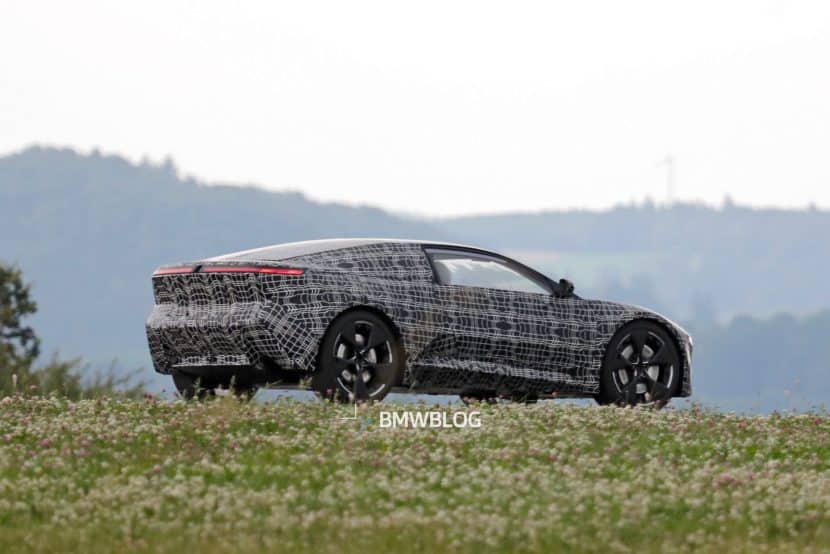It’s been over a year since car paparazzi surprised us with images of this intriguing camouflaged vehicle. Clearly a Neue Klasse coupe of some sort, the cloaked BMW was never seen again. It remains unclear whether the car was intended as a concept or a prototype. However, the fact that it was caught in motion suggests the high-riding, two-door EV was a functional test car.
That coupe has since come and gone, with BMW staying tight-lipped the whole time. From what we’ve heard, nothing will come of that puzzling prototype. Still, that doesn’t mean Munich is completely closing the door on a Neue Klasse–based sports car. The company’s R&D boss, Joachim Post, told Australian media the new hardware makes it “feasible” to engineer a dedicated performance vehicle.
In an interview with Drive magazine, BMW’s board member for development explained that NK was engineered for a wide range of models: “The philosophy of BMW also has been in the past to… we say ‘baukasten,’ and that means that we have communal parts for different types of cars and different segments.” The German word translates to “construction kit” or “building set,” making Neue Klasse a modular platform. Standardized parts can be combined for a broad variety of products, from the new iX3 to a potential sports car.
Post noted that the baukasten approach enables BMW to launch 40+ new or updated cars by the end of 2027. As BMWBLOG exclusively reported, the iX5 and iX7 will adopt sixth-generation battery tech with round cells, even while retaining the CLAR platform. This high degree of modularity not only accelerates development but also significantly reduces engineering costs through economies of scale.
Still, the statement is far from confirmation that an electric sports car is on the way. The upcoming influx of models will focus on volume products, which is why the iX3 and next year’s i3 are leading the rollout. Logic suggests that only once BMW’s Neue Klasse lineup is fully established might there be room for a niche product. The real profits come from core models, such as SUVs and sedans, not low-volume cars. That’s just how the cookie crumbles in the auto industry.
BMW is, after all, a business that must remain profitable to keep the lights on, and a new sports car wouldn’t move the needle. Making it purely electric wouldn’t increase its appeal either; if anything, it would have the opposite effect. For ICE loyalists, the inline-six and V8 aren’t going anywhere. M will continue to refine the S58 and S68 to comply with Euro 7 regulations, so the company’s largest-displacement engines still have a future.
Source: Drive

